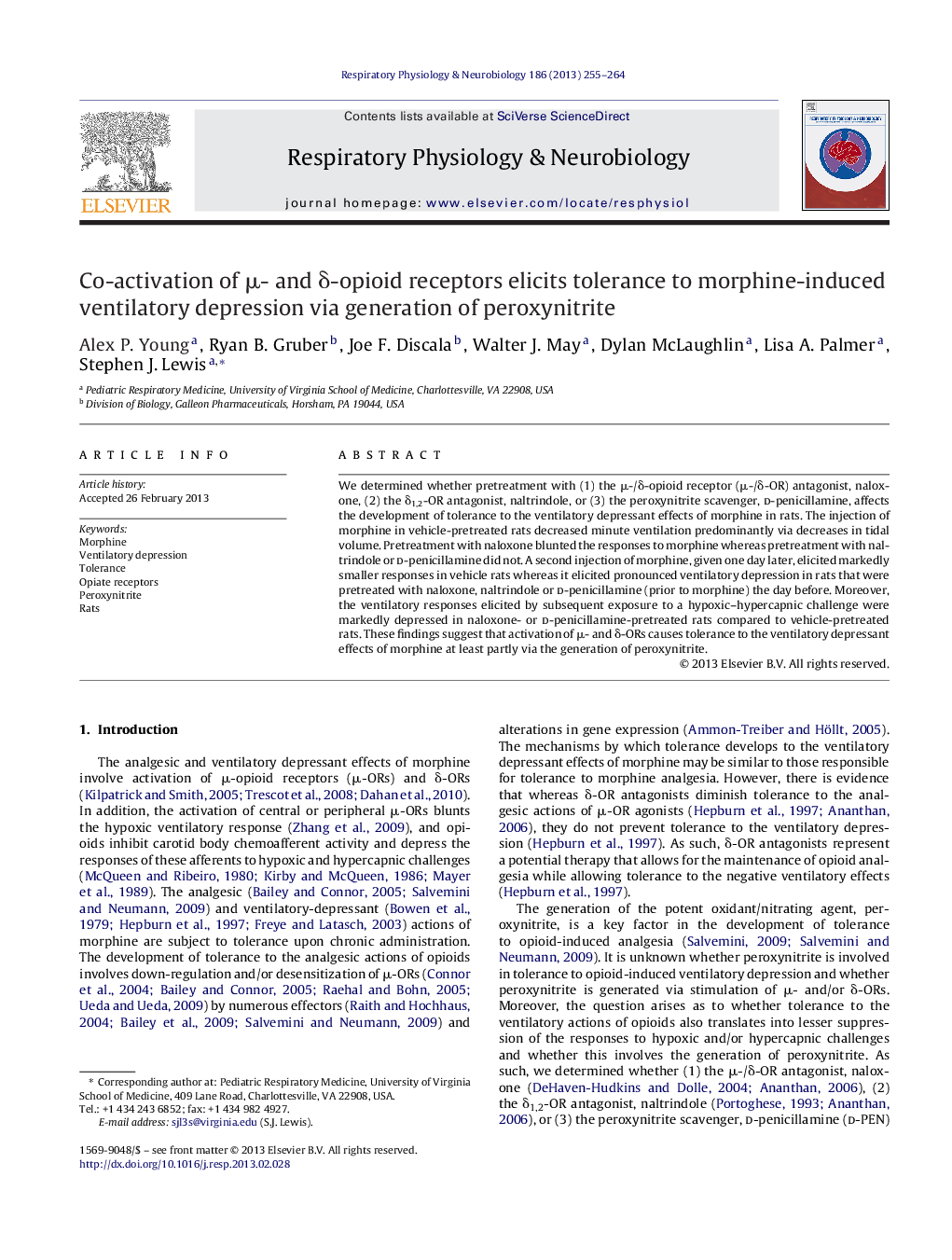| Article ID | Journal | Published Year | Pages | File Type |
|---|---|---|---|---|
| 2847257 | Respiratory Physiology & Neurobiology | 2013 | 10 Pages |
•The μ-/δ-opioid receptor antagonist naloxone decreased tolerance to morphine.•The δ1,2-opioid receptor antagonist naltrindole decreased tolerance to morphine.•The peroxynitrite scavenger d-penicillamine decreased tolerance to morphine.•Co-activation of μ-/δ1,2-opioid receptors impairs the effects of morphine via generation of peroxynitrite.
We determined whether pretreatment with (1) the μ-/δ-opioid receptor (μ-/δ-OR) antagonist, naloxone, (2) the δ1,2-OR antagonist, naltrindole, or (3) the peroxynitrite scavenger, d-penicillamine, affects the development of tolerance to the ventilatory depressant effects of morphine in rats. The injection of morphine in vehicle-pretreated rats decreased minute ventilation predominantly via decreases in tidal volume. Pretreatment with naloxone blunted the responses to morphine whereas pretreatment with naltrindole or d-penicillamine did not. A second injection of morphine, given one day later, elicited markedly smaller responses in vehicle rats whereas it elicited pronounced ventilatory depression in rats that were pretreated with naloxone, naltrindole or d-penicillamine (prior to morphine) the day before. Moreover, the ventilatory responses elicited by subsequent exposure to a hypoxic–hypercapnic challenge were markedly depressed in naloxone- or d-penicillamine-pretreated rats compared to vehicle-pretreated rats. These findings suggest that activation of μ- and δ-ORs causes tolerance to the ventilatory depressant effects of morphine at least partly via the generation of peroxynitrite.
